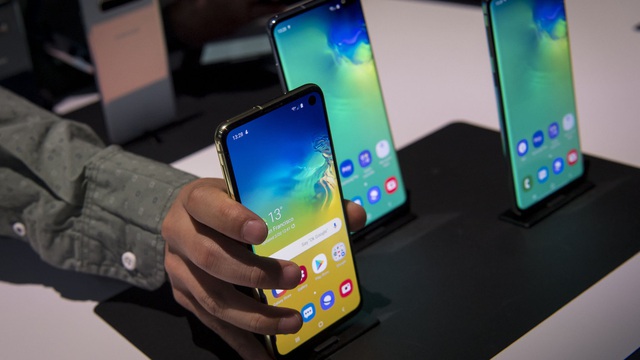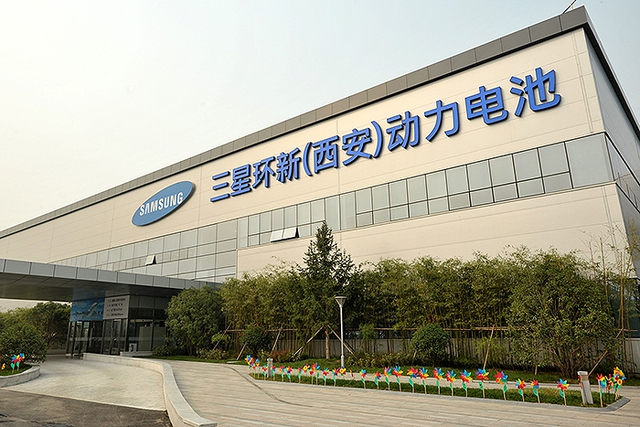Samsung CEO personally set up a new team, serious about returning to China to win the market
- Tram Ho
As reported by Korean media, Samsung has formed a new team focusing on the Chinese market, who will work with and report directly to co-CEO Han Zongxi. The division, named “China Business Innovation Group”, will not only be involved in mobile phones but also home appliances.
However, for now, Samsung’s return has not made any further moves. Samsung has 18,000 employees in China in 2020, down 40% from 2018. The Korean conglomerate’s net revenue in China also fell 12.5% for the whole of 2020, though still at 31.9 billion USD. After the decline in the mobile phone market, Samsung’s factories in China have all closed, and the business in this country is currently mainly semiconductor and memory chips.
Statistics from research firm Counterpoint show that, in 2014, Samsung accounted for 20% of the Chinese smartphone market share, coming in first place. However, with the rise of local companies such as Huawei and Xiaomi, and the impact following the Galaxy Note7 mobile phone explosion in 2017, Samsung’s market share in China has repeatedly shrunk and became one of the few markets where Samsung failed to recover.

But now, the situation has changed a lot and Samsung has clearly found a gap in this huge market. Even after being quiet for many years, Samsung’s strong imprint in China has not completely faded. It still has the best foldable screen, the most memory shipped, and the company’s chips are still present in high-end domestic models.
Samsung has its own advantages, especially in the high-end market. And conversely, as the overall focus has shifted to chips, Samsung still needs the mobile phone business to provide steady cash flow. When the growth of the international market has peaked, China is one of the few markets with very large consumption power, and of course it is also the most difficult to penetrate.
If you look at the world, even if the iPhone is on the rise, Samsung still ranked first in global shipments last year, and its folding screens accounted for nearly 80% of total shipments, or more than 7 million units. . This means that if Samsung returns to China, it will still be a formidable competitor.
Chinese domestic phone lines tend to be saturated and have not really made a difference. In September 2021, Liu Bo, OPPO vice president, publicly stated that: “In the mid-range smartphone market, OPPO’s market share is less than 10%” . And according to industry experts, in the high-end smartphone market, Apple accounts for 90% of the market.

Samsung had to close many factories in China as its market share continued to decline in all aspects.
After Huawei “turned off”, the battle in the high-end smartphone market in China seems to have really come to an end, with Apple’s overwhelming victory. In fact, in terms of hardware, the specifications of high-end Chinese phones are not bad. OLED screens with 120Hz resolution, hundreds of millions of pixels cameras and 66w fast charging have become the norm for high-end flagships. But once again, the insurmountable power of a brand continues to be proven.
The marketing industry consistently shows brutal statistics: The first brand that comes to mind often has twice the long-term market share of the second and four times the market share of the second. Tuesday. The numerous failure cases in the past have proven that competing with the top brands that occupy the minds of consumers is almost an impossible task.
The good news for Samsung is that it is gaining a foothold in both the high-end and low-end segments. According to Counterpoint data, Apple and Samsung share 57% and 17% market share of the smartphone segment over $400, respectively. In the first quarter of 2021, ultra-premium mobile phones over $900 accounted for 25% of global smartphone sales, dominated by Samsung and Apple, analysts at Strategy Analytics said.
And Samsung is also very different from Apple. The Korean company is willing to play price wars to beat competitors in the same segment. In India, they released their own low-priced M series which has allowed the company to overtake Xiaomi in the mid- to high-end price segment. Therefore, if Samsung is really willing and working to rebuild its distribution channel relationships and invest heavily in advertising, it may stir up the whole market.
Refer to Sina
Source : Genk
